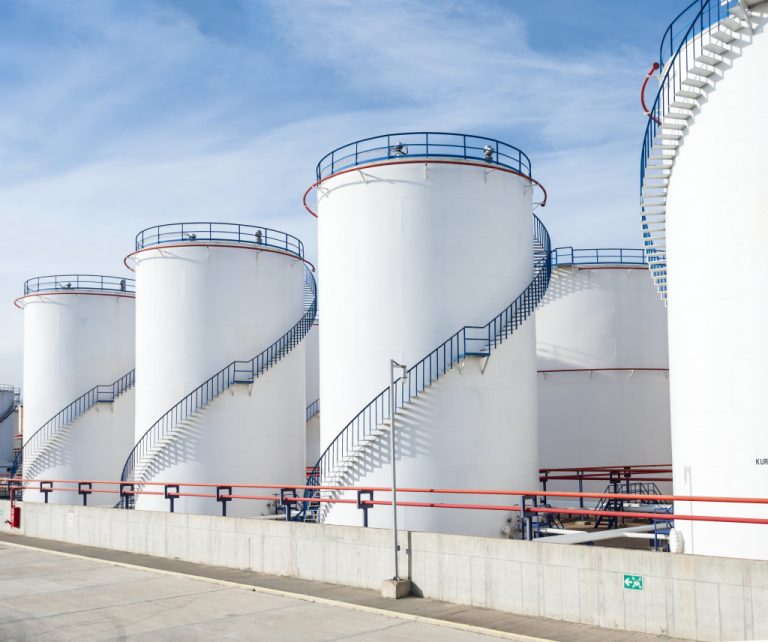When a business decides to enter an industry that requires large amounts of water and gas for daily operations, it must have suitable industrial tanks to store and supply those resources. Industrial tanks are essential for any business that needs to regularly keep or use water and gas. They provide a safe and secure way to store these resources and help ensure that the company can operate smoothly and efficiently.
However, it’s not as simple as just putting something in the tank and forgetting about it. Companies must take a few business steps to ensure that the tank is well-maintained and doesn’t cause any problems down the road. Here are a few of those critical measures.
Inspect for Damage or Leaks
One of the most important things businesses need to do for their industrial tanks is to inspect them for damage and leaks. If a tank is damaged or has a leak, it can cause problems, from resource waste to safety hazards. That’s why it’s so essential for companies to perform regular inspections on their tanks and fix any damages as soon as possible.
In addition, leaks can be highly costly for businesses. They waste resources, but they can also lead to fines from regulatory agencies. So it’s in companies’ best interest to take care of leaks as soon as they’re detected. Businesses must create emergency scenarios to ensure that tank damage or leak receives a fast response.
Conduct Regular Maintenance

Another critical business step for companies with industrial tanks is regular maintenance. It includes tasks like cleaning the tank, checking the valves and seals, and testing the resources inside for quality. By conducting regular maintenance, businesses can catch any problems early on and prevent them from becoming more severe.
It’s also essential to plan what to do if something goes wrong with the tank. Businesses should know who to contact in case of an emergency and have a system to address any issues quickly. Cryogenic tanks require more care and attention since it contains potentially hazardous levels of the substance. Fortunately, you can rely on corrosion control services to ensure that damages that lead to disaster will not happen.
Clean Tanks and Surrounding Areas
Tank cleaning is an integral part of regular tank maintenance. It keeps the tank clean and functioning correctly, but it also helps to keep the surrounding area clean.
If a tank does not have a fixed cleaning schedule, it can become dirty and filled with debris. It can lead to several problems, such as:
- Infection hazards: If the tank contains dirty water or other liquids, it can create a breeding ground for bacteria and other dangerous contaminants. It can lead to serious health hazards for anyone who comes into contact with the liquid.
- Fire hazards: A dirty tank can easily ignite if it comes into contact with a spark or flame. The scenario can lead to a dangerous fire that could potentially damage the entire property.
- Explosion hazards: If the tank is full of flammable liquids, a fire can cause the entire contents of the tank to explode. It can lead to severe injuries or even death for anyone nearby.
That’s why it’s so essential for businesses to keep their tanks clean and free of debris. Companies should do tank cleaning regularly to prevent these hazards from occurring.
There are a few different ways to clean an industrial tank. The most common method is to use high-pressure water jets to remove any built-up dirt and debris. It involves a specialized truck with the equipment necessary to do the job correctly.
Another method of cleaning is known as “sludge removal.” It is a more intensive process involving removing sludge and sediment from the bottom of the tank. Businesses use a suction pump for this cleaning strategy.
Once the tank is clean, it’s important to disinfect it to kill any harmful bacteria that might be present. Businesses can utilize various products, such as bleach or chlorine.
It’s also essential to clean the surrounding area of the tank. It includes the ground around the tank, as well as any pipes or valves that are attached to it. Companies should clean these areas regularly to prevent dirt or debris from entering the tank.
Follow all Safety Protocols
Employees working with or around industrial tanks should always follow safety protocols. It is essential to keep themselves and others safe from potential hazards.
Here are some of the safety protocols that employees should follow:
- Wearing proper safety gear, such as gloves, goggles, and a respirator
- Keeping a safe distance from the tank, especially if it’s leaking
- Not smoking or using flames near the tank
- Not touching the tank or any of the liquid inside it unless they are wearing gloves
If employees follow these safety protocols, they can help reduce the risk of injuries or accidents. Everyone needs to be aware of these guidelines and comply with them.
Conclusion
Taking care of industrial tanks is essential for any business. It helps keep the tank clean and function correctly and prevents accidents and injuries. Taking these steps can ensure that their tank is in good condition and everyone remains safe.




